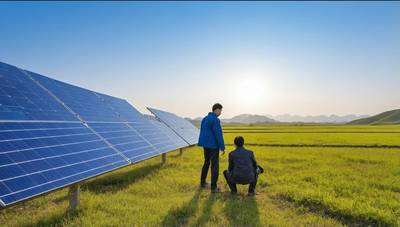Researchers find that China's clean-energy investments are on par with global fossil fuel investments.
According to a recent analysis by the U.K.-based Carbon Brief, China will invest 6.8 trillion yuan (about $940 billion) in clean energies in 2024. This is close to the global investment of $1.12 trillion made in fossil fuels.
This was despite the fact that growth in China's investments in clean energy slowed to 7% in 2023 from 40% due to overcapacity. Over half of this investment was from China's rapidly growing electric vehicle, solar and battery industries.
Carbon Brief, a research conducted by the Centre for Research on Energy and Clean Air in Helsinki, found that the sector contributed 10% to China's economy in 2024. This is up from 9% in the year 2023.
Clean energy has grown three times faster than the Chinese economy. However, its contribution to China’s GDP growth dropped to 26% last year from 40% in 2023 as growth in clean-energy economy cooled.
The clean energy industry includes electric vehicles, batteries, renewable manufacturing, power generation and railways. It also includes energy efficiency, electric grids, and energy storage.
The report stated that the lower prices of solar and batteries, as well as deflation, contributed to the weaker contribution of GDP growth.
China's electric vehicle (EV), which is booming, contributed the most to GDP. 3 trillion yuan came from production of EVs and hybrids and 1.4 trillion from factory investments. Another 122 billion dollars was contributed by charging infrastructure.
Solar contributed 2.8 trillion Yuan to the GDP, of which 1 trillion was invested in projects for power generation. Solar manufacturing investment contributed 779 bn yuan a year to the GDP. This was below power generation, as solar panel prices in China reached a record low. Component exports, and electricity generation accounted for 607 billion yuan and 386 billion respectively.
Researchers expect that clean energy investments will continue to grow rapidly until 2025, which is the final year of the current 5-year plan.
They said that more ambitious targets are needed for the next plan, which will be in 2026-2030, to maintain current levels of clean-energy deployment.
(source: Reuters)






